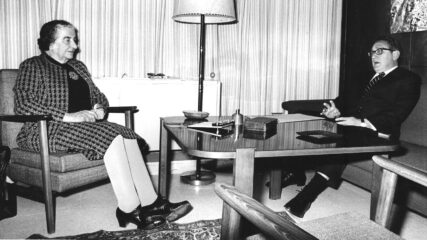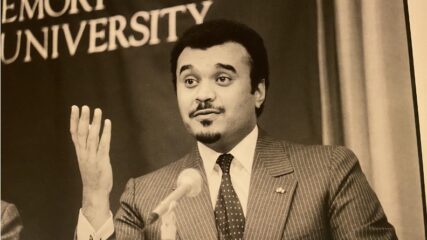Transcripts of interviews with witnesses and participants in history, of expert observations from retrospective conferences examining key events and concepts in Israel's development, and of CIE webinars and workshop sessions

In carrying out research in the 1990s for Heroic Diplomacy: Sadat, Kissinger, Carter, Begin and the Quest for Arab-Israeli Peace, Routledge, 1999, I undertook 84 interviews with individuals who participated in the diplomacy.

Nabil Shaath was a close adviser to Arafat particularly in the tumultuous 1998-1993 period when the PLO was buffeted by events and bad choices. Shaath praised Secretary Baker, President Bush and Yitzhak Rabin, and was pleased that Palestinians were participating in the Madrid Conference. He hoped for an end to the conflict with Israel in 1992, based on land for peace but held out for the right of Palestinian return for that to happen. In 2023 he is a foreign policy adviser to Mahmoud Abbas.

After the August 15, 2020, announcement that the UAE would recognize Israel in return for not annexing any of the West Bank area, the PLO and the PA reacted with anger, calling the UAE action a ‘stab in the back of the Palestinians.’ Subsequently, the Arabic written media and analysts in the Middle East and elsewhere poured out their thoughts about what this action meant to the future of the Palestinian community worldwide and to the Palestinian issue in general. One of the many responses was presented in a webinar by the Brookings Institution on August 27, 2020.

Ambassador Bandar Bin Sultan served as Saudi Arabia’s Ambassador to the United States from 1983 to 2006. From 2005 to 2015 he led the country’s National Security Council. He offers a scathing attack on Yasser Arafat’s failure to embrace multiple negotiating overtures proposed by Presidents Carter and Reagan. Additionally, he expresses his anger at the present Palestinian leadership for criticizing the UAE’s recognition of Israel in the 2020 Abraham Accords.

CIE President Ken Stein addresses what is and what is not known about why Hamas attacked October 7, 2023, why Israel was caught off guard, and what happens after the war across the region.




